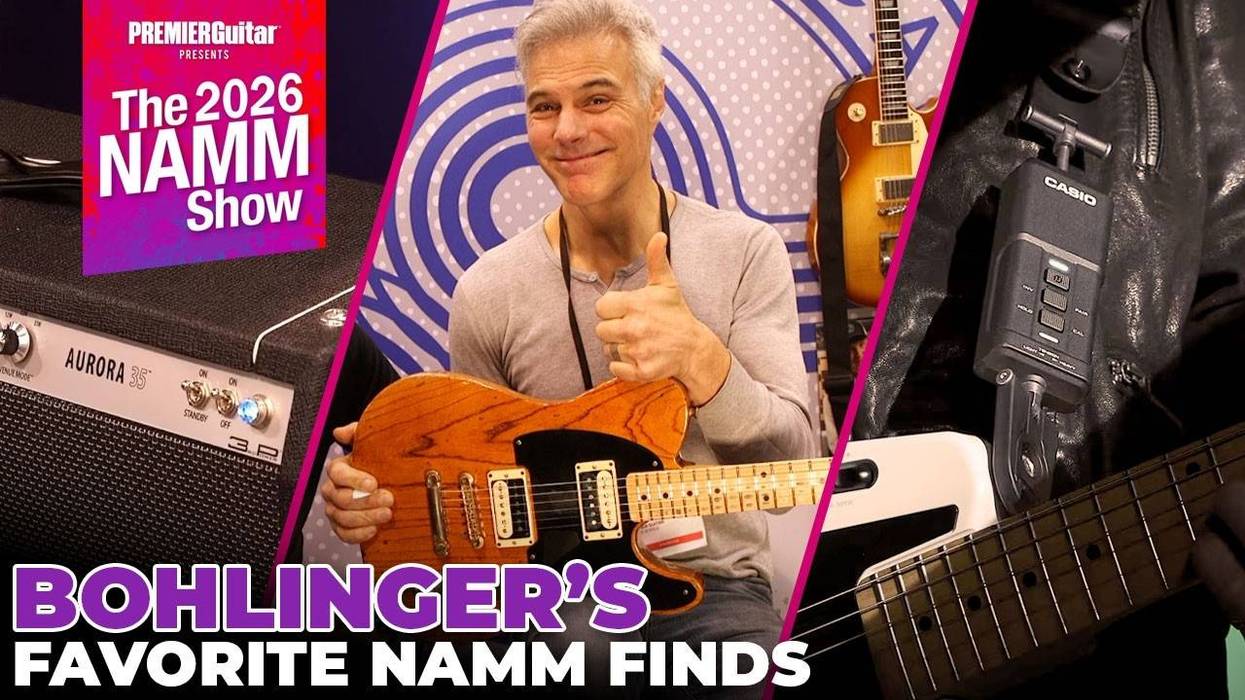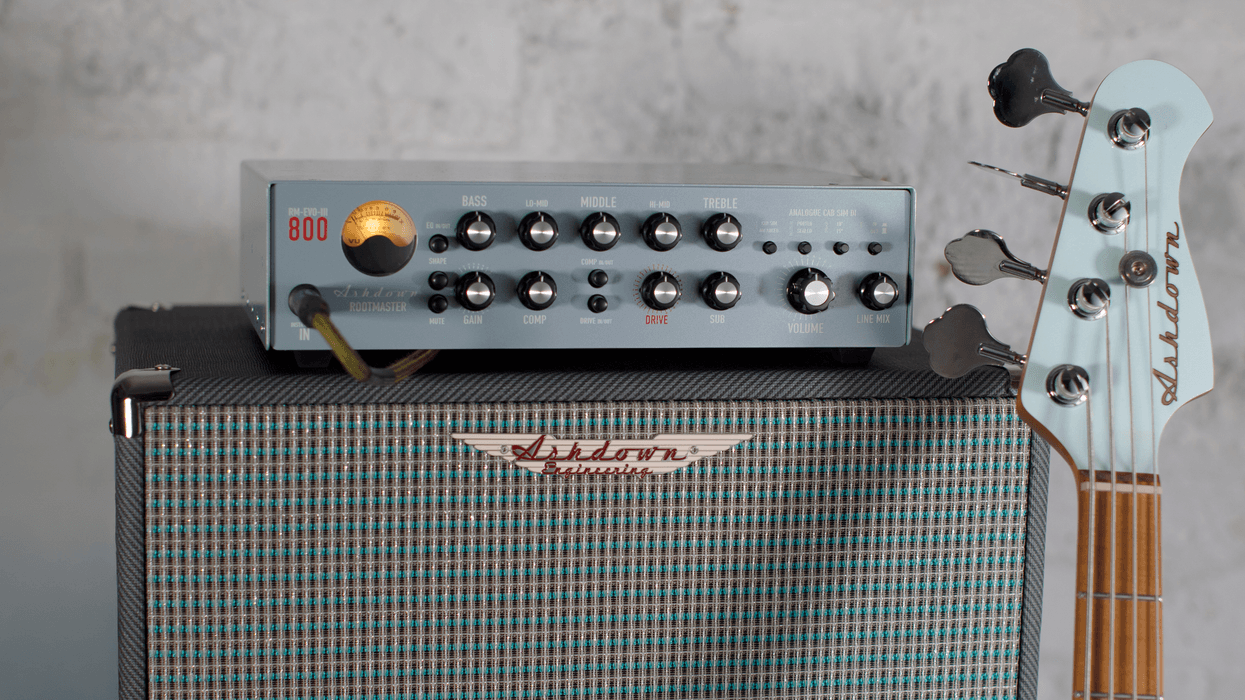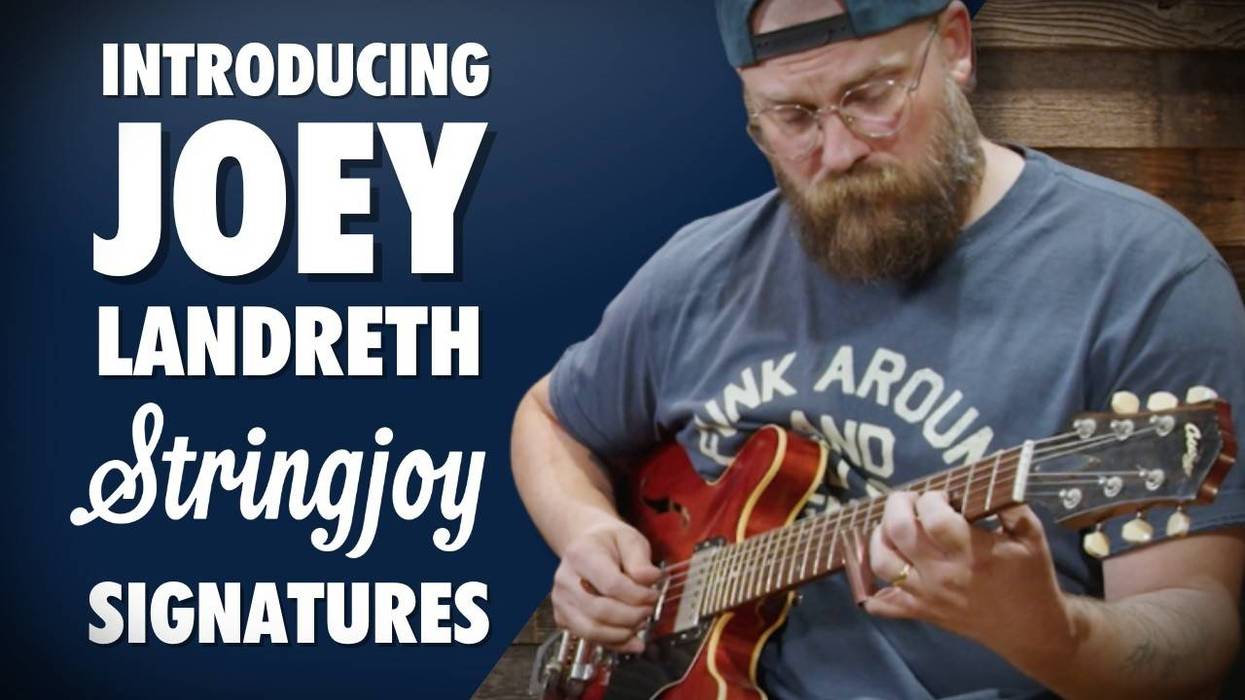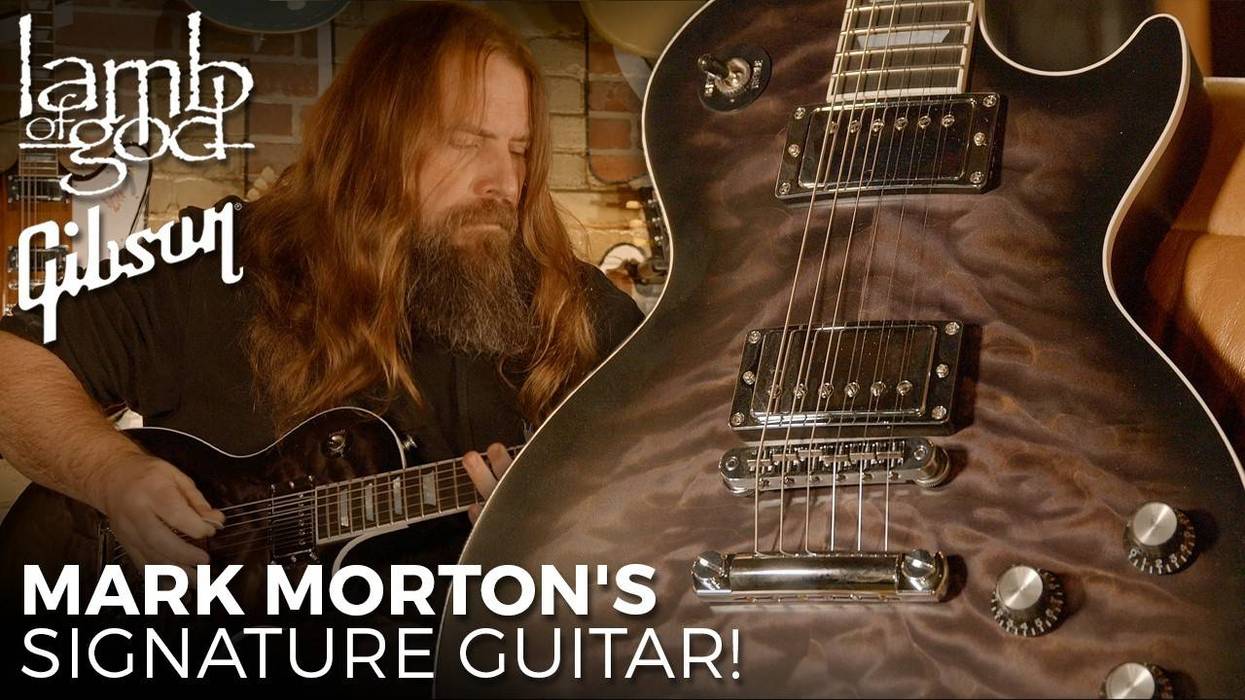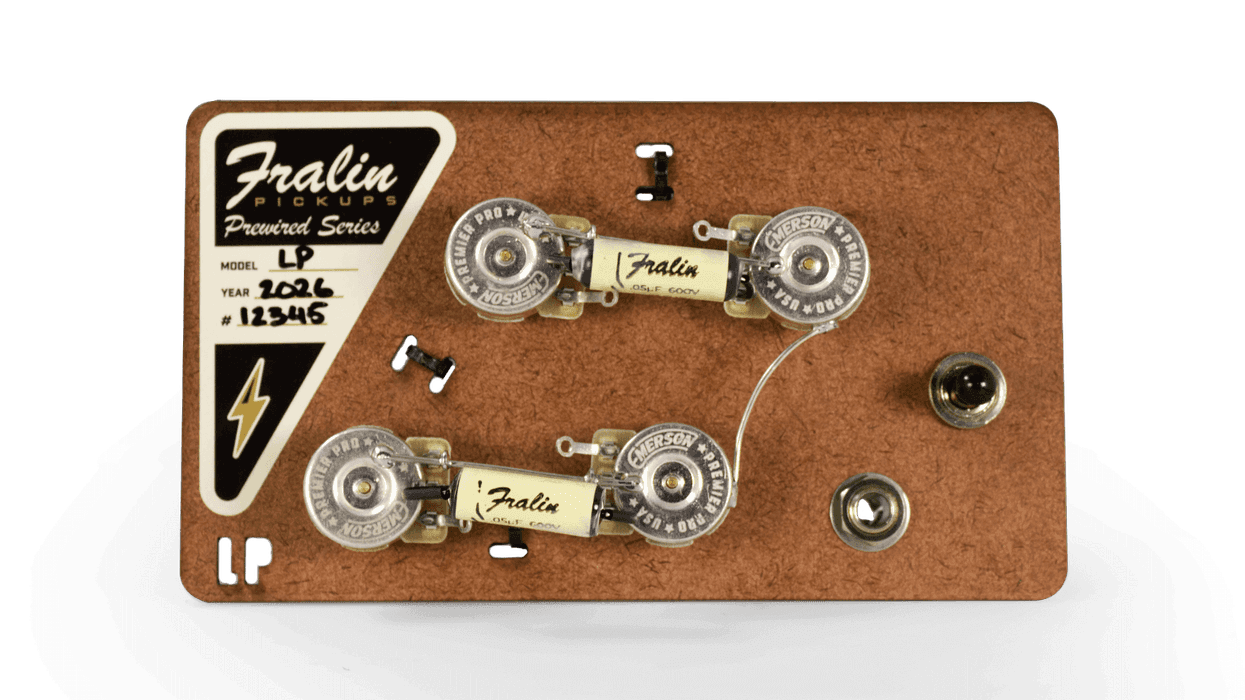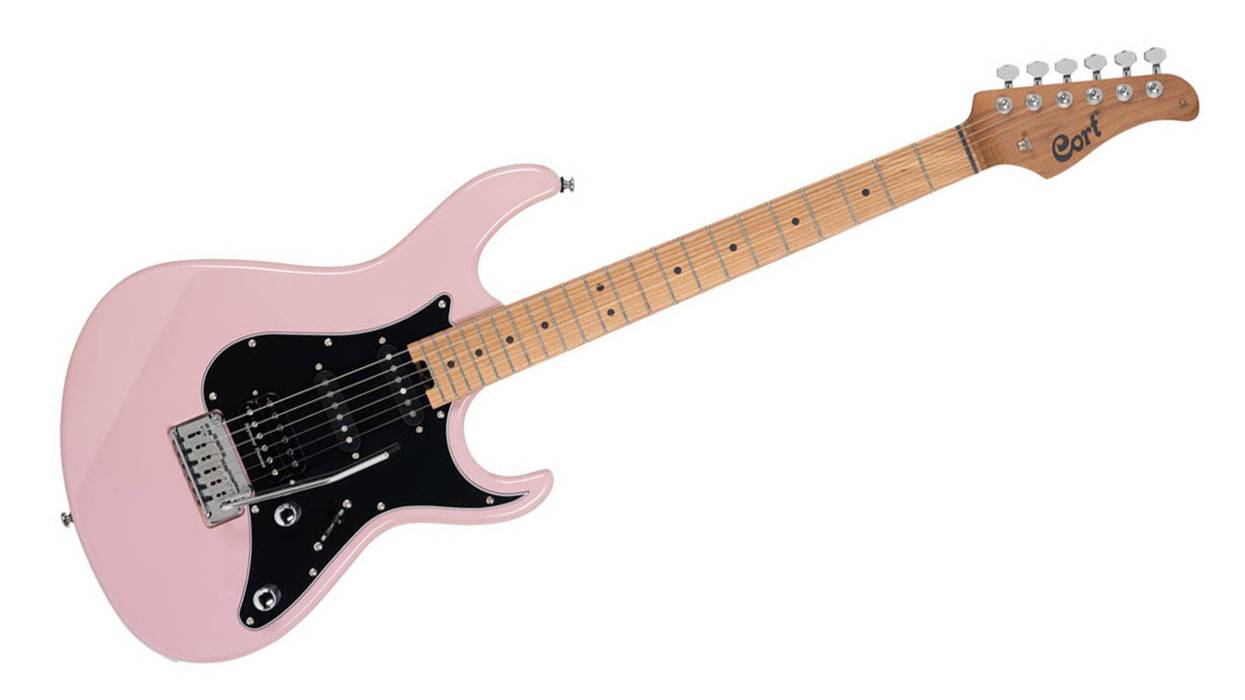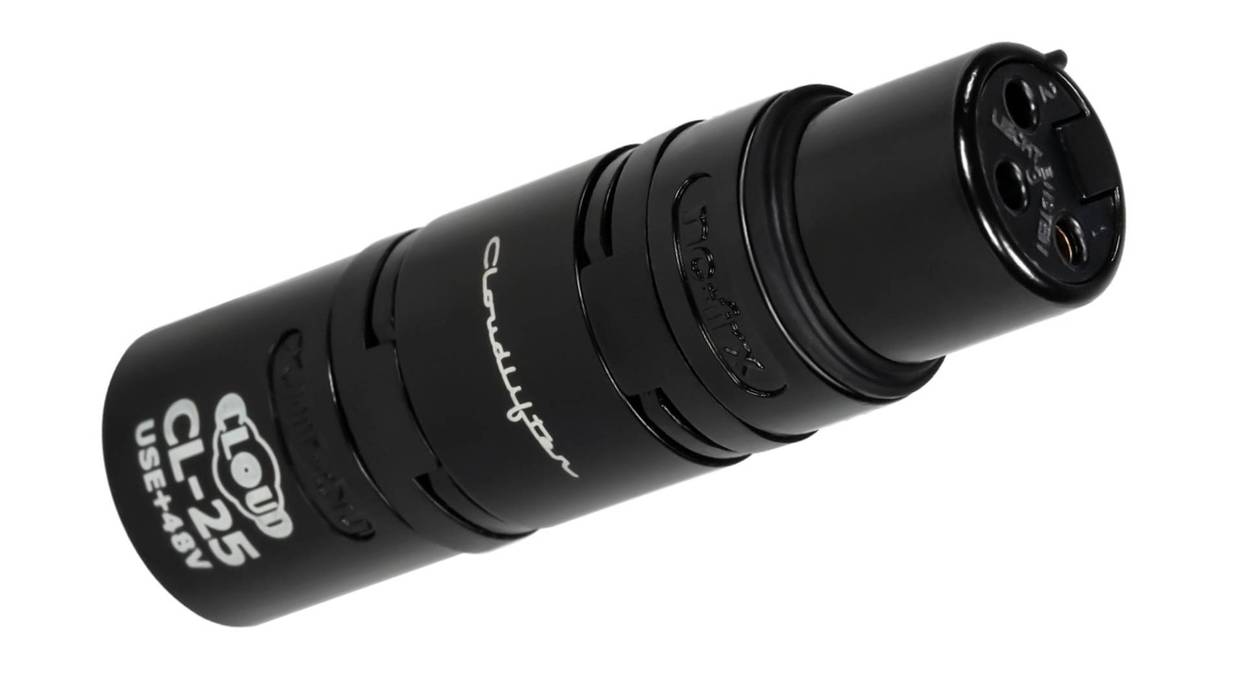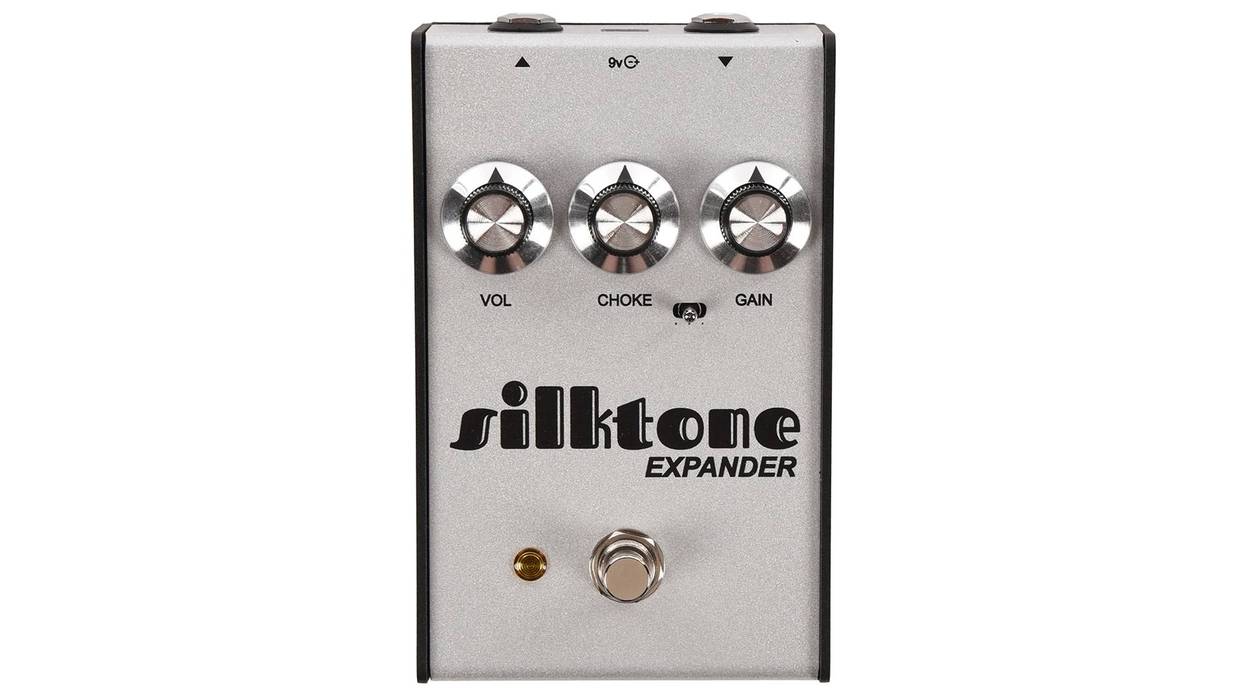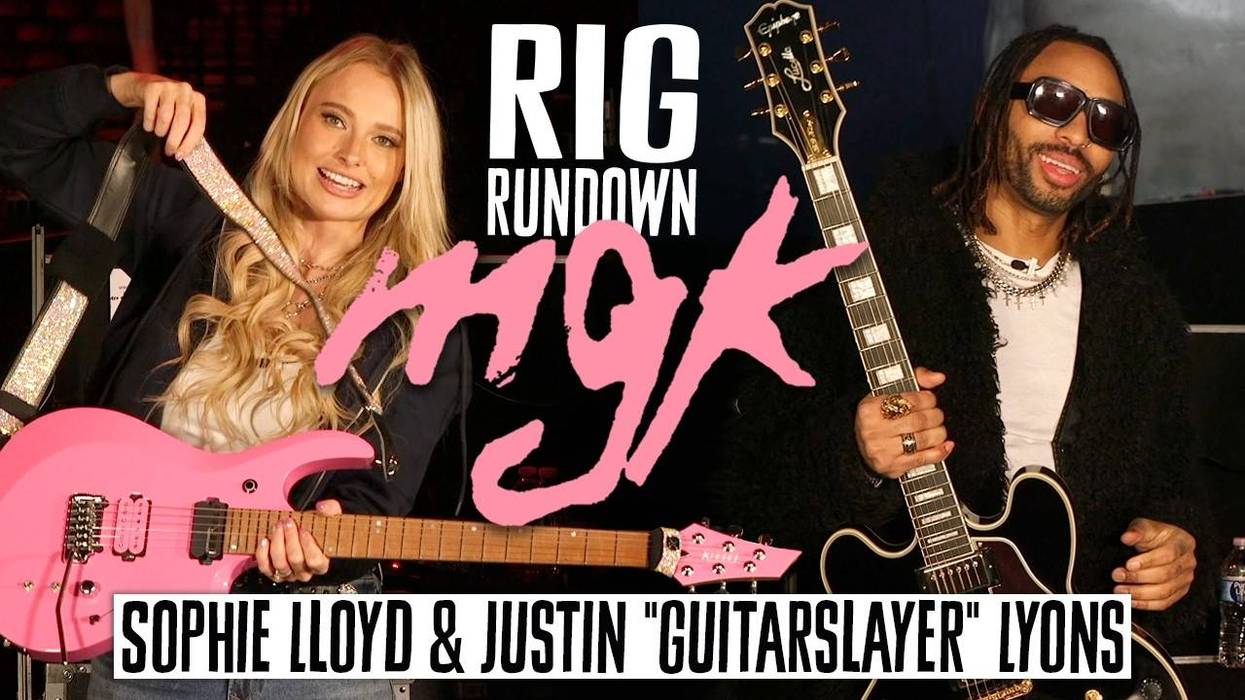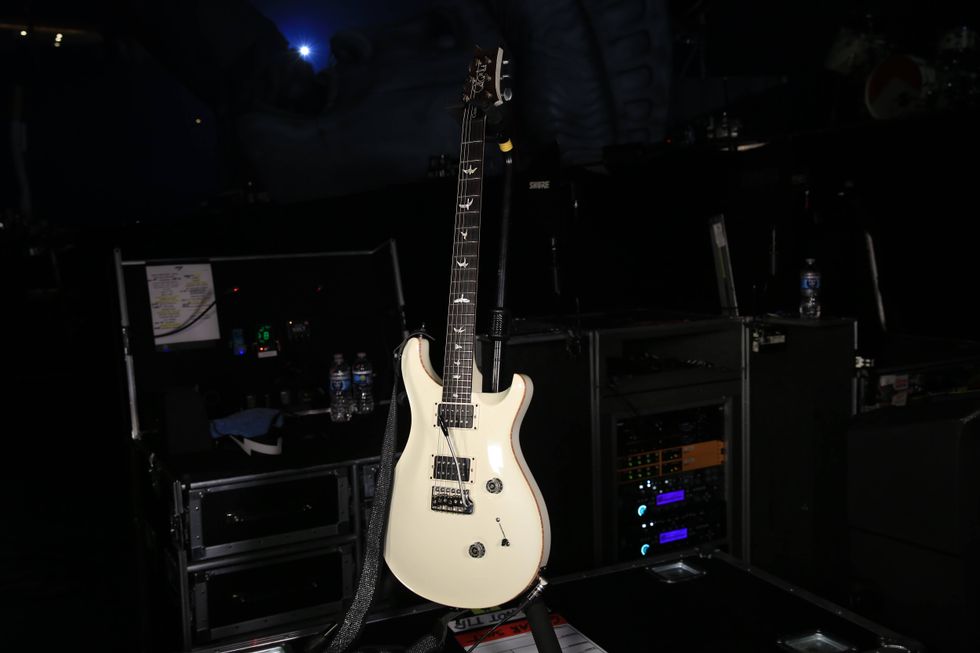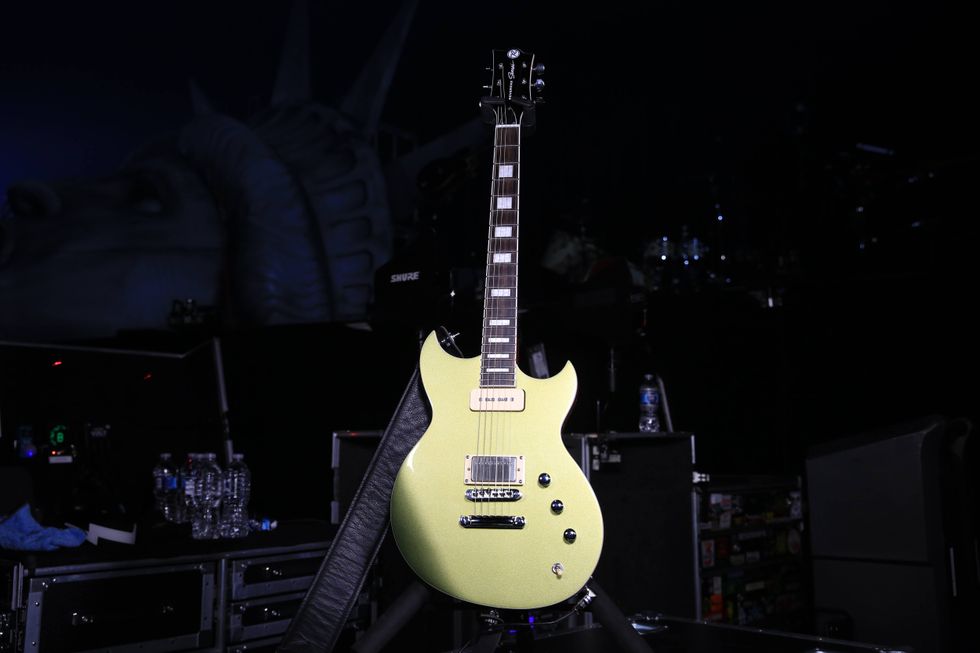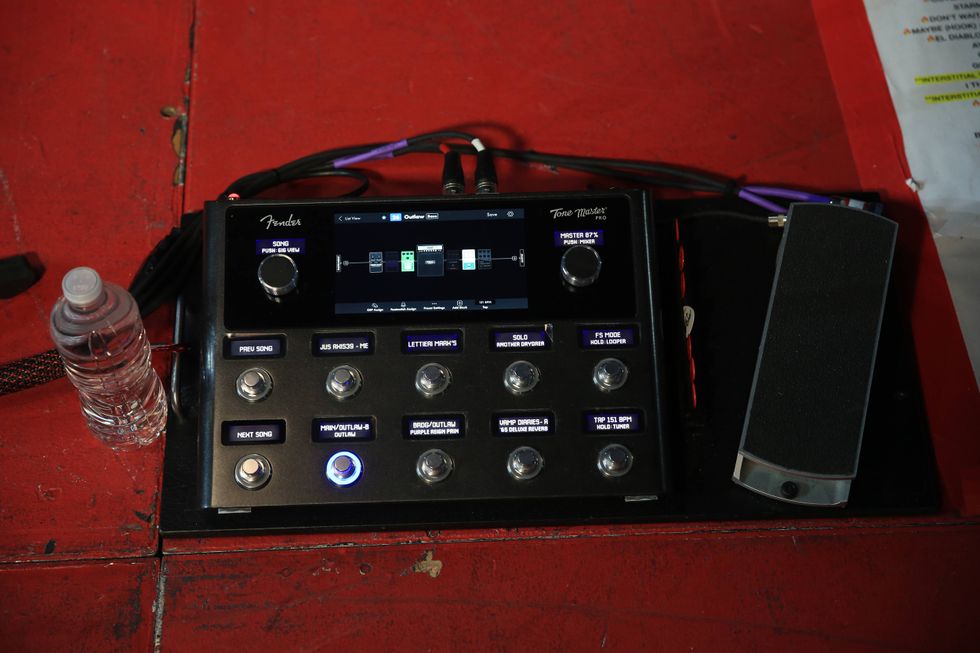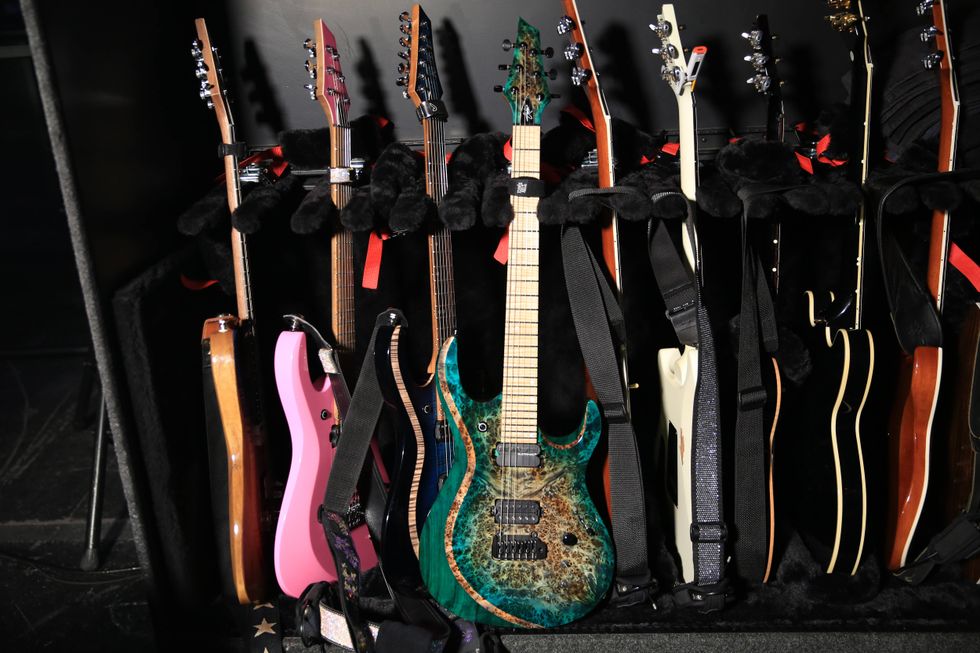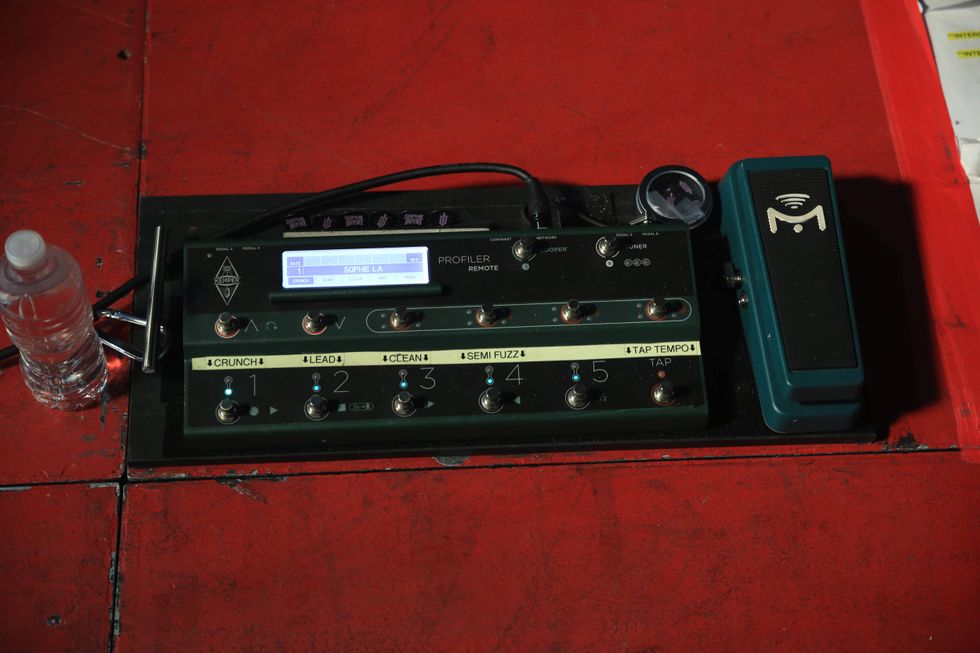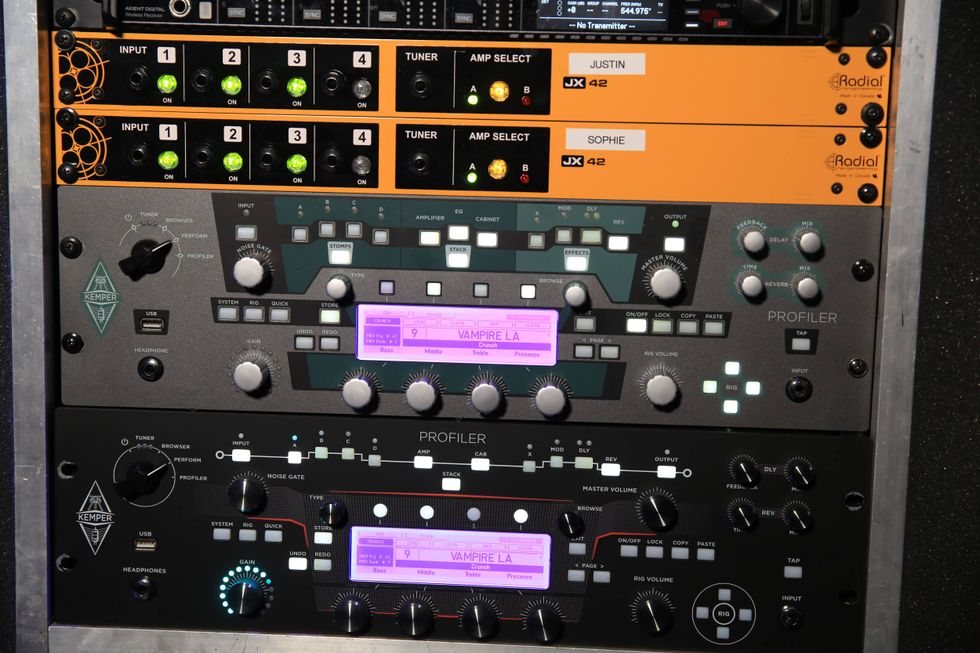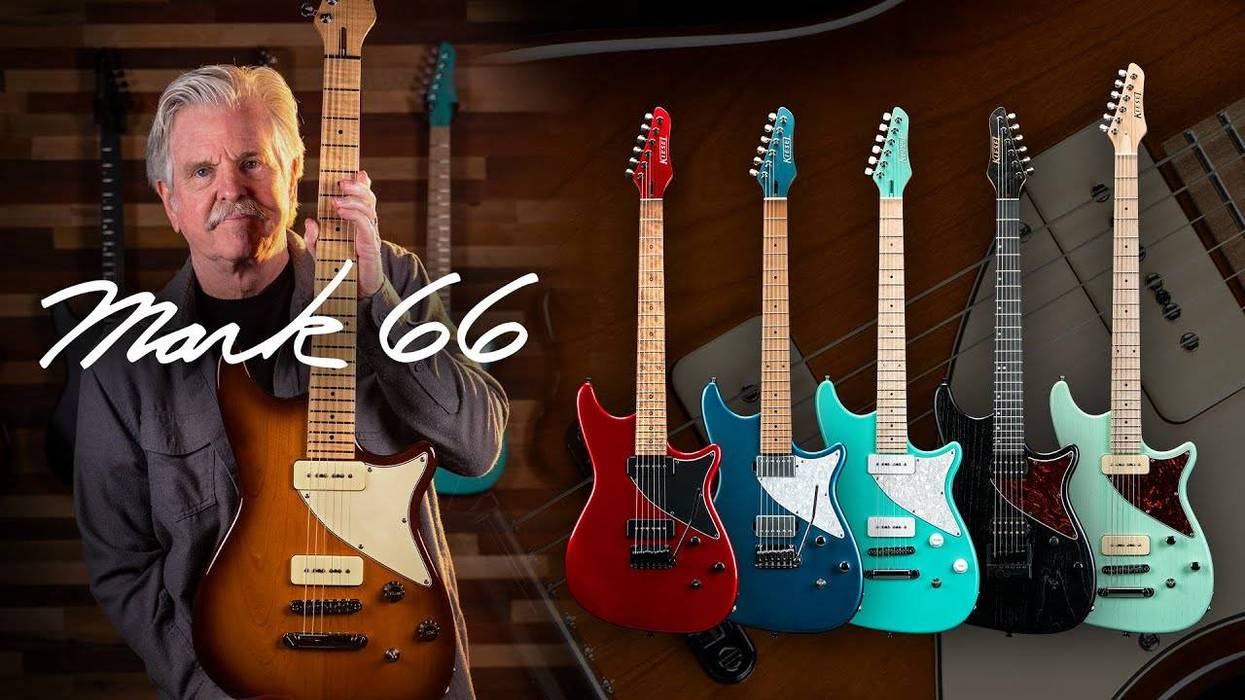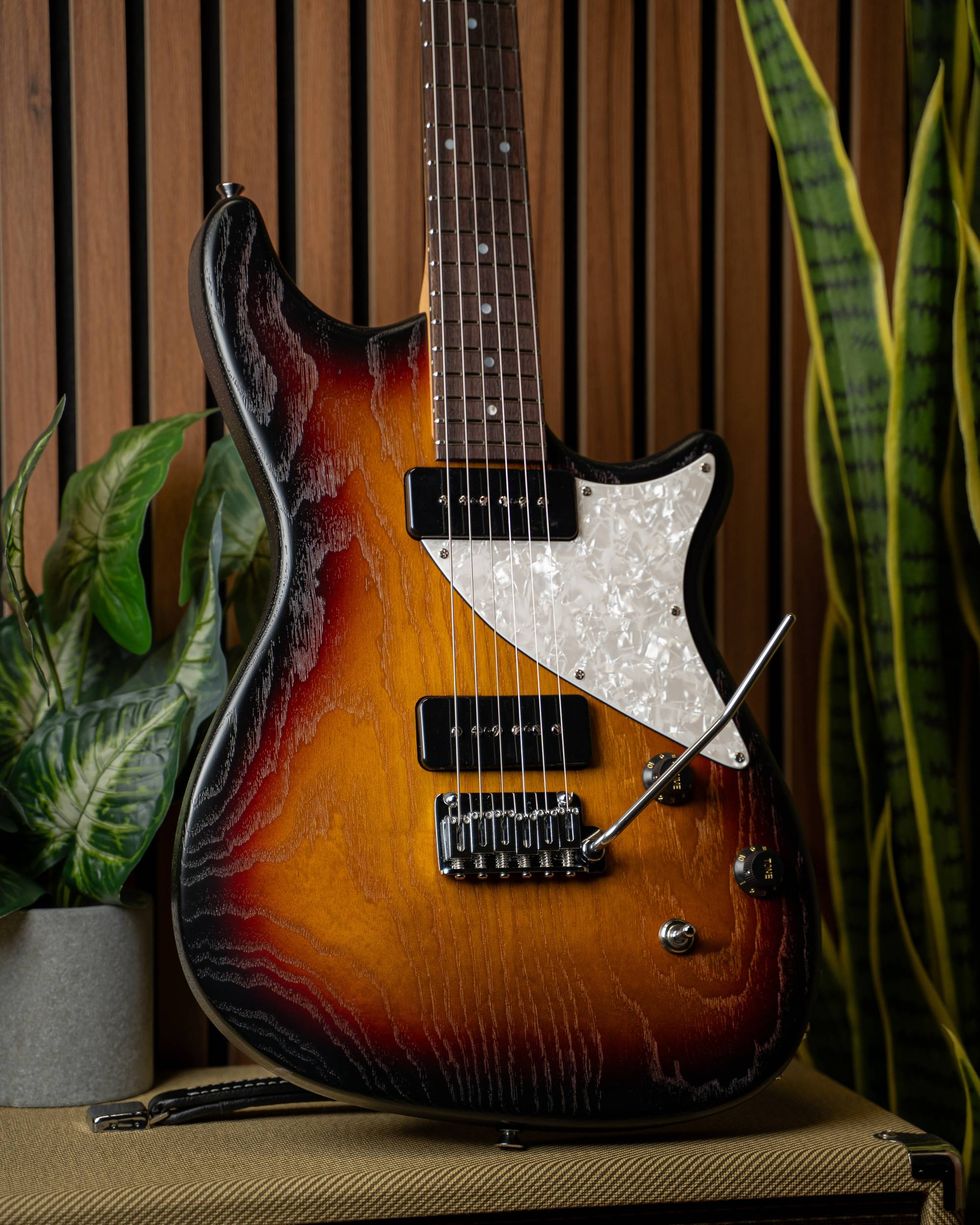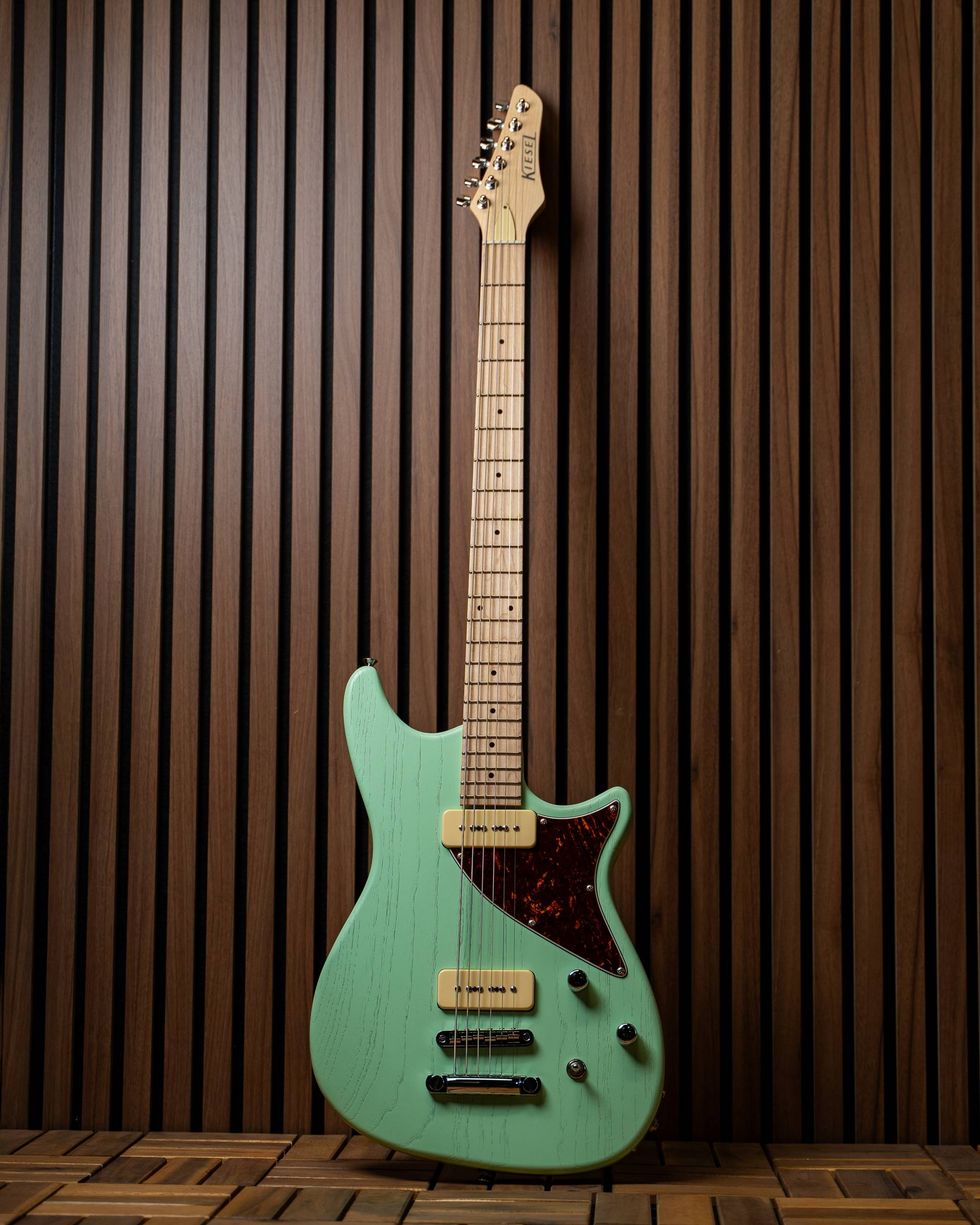| |
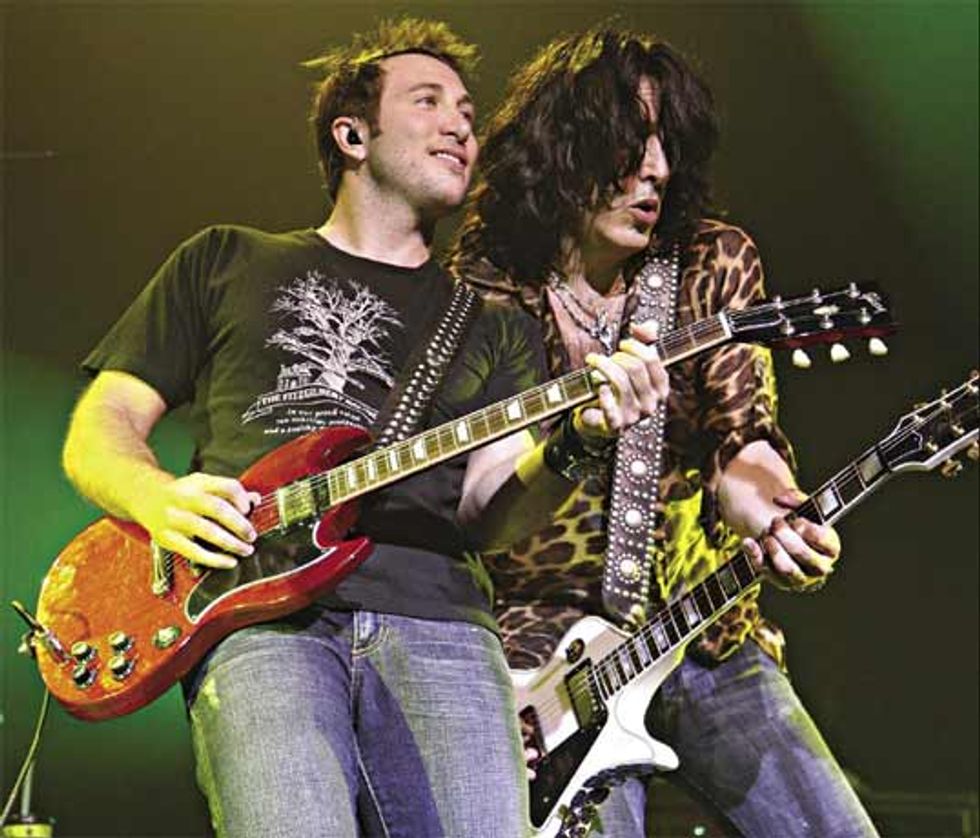 |
We would gaze in the full length mirror perfecting our rock moves all day and night; we were kids having fun and we loved it. What I didn’t realize (as I’m sure no one else did), was that I was actually preparing for a job that I would have later in life. I was going to say a “dream job,” but I ended up living it.
At 21, I moved to L.A. to pursue a career in music. While spending time writing songs and working on my own music (shameless plug for my record … available on my website), I got a call from a friend of mine who worked at a management company. He said there was a female artist (Rebekah) there who needed “someone like me” – a guy who could play keyboards, guitar and sing like a lead singer. As it turned out, I got the gig; ten years, several world tours with various artists (Michelle Branch, Cher, New Radicals, just to name a few) and a hit international T.V. show later, I got another call.
It was from Paul Stanley.
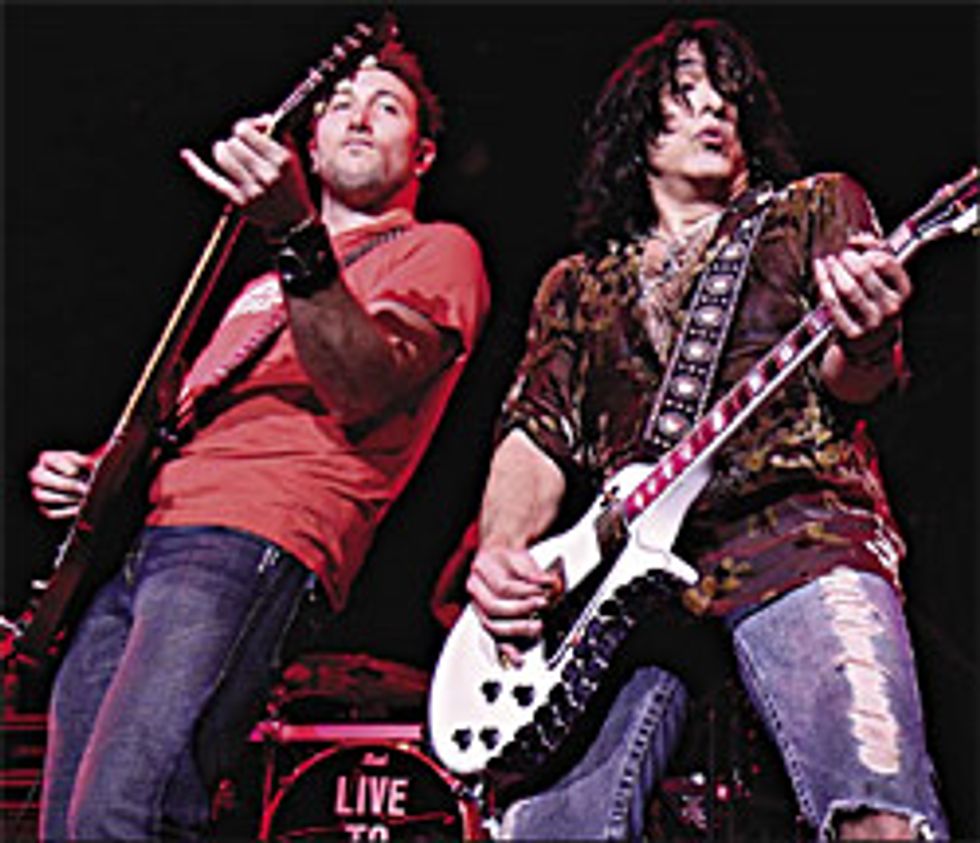 When I checked my voicemail that early September day, I was shocked to hear that smokey, distinctive voice. He had left a message telling me that he had a solo record coming out, and wanted to talk to me (and the House Band) about playing with him. I immediately called my childhood friends and told them about the call. Growing up in the South Jersey/Philly area, rock n’ roll was our upbringing. KISS, Bon Jovi, Cinderella, etc. They were the soundtrack of our high school days. When I finally spoke with him, he was as cool and down to earth as anyone I have ever met, let alone someone who has sold around 80 million records.
When I checked my voicemail that early September day, I was shocked to hear that smokey, distinctive voice. He had left a message telling me that he had a solo record coming out, and wanted to talk to me (and the House Band) about playing with him. I immediately called my childhood friends and told them about the call. Growing up in the South Jersey/Philly area, rock n’ roll was our upbringing. KISS, Bon Jovi, Cinderella, etc. They were the soundtrack of our high school days. When I finally spoke with him, he was as cool and down to earth as anyone I have ever met, let alone someone who has sold around 80 million records. After a few phone calls, Paul and his manager, Doc McGhee, invited us to dinner. It was over a meal that they offered us a job to be Paul’s band for a monthlong tour to promote Paul’s new record, Live to Win.
The timing was such that there were a few weeks left on the second season of Rock Star. After the last show, we only had a week before we had to start learning KISS/Paul songs. It was bit tight, but we learned about twenty songs and started rehearsing right away.
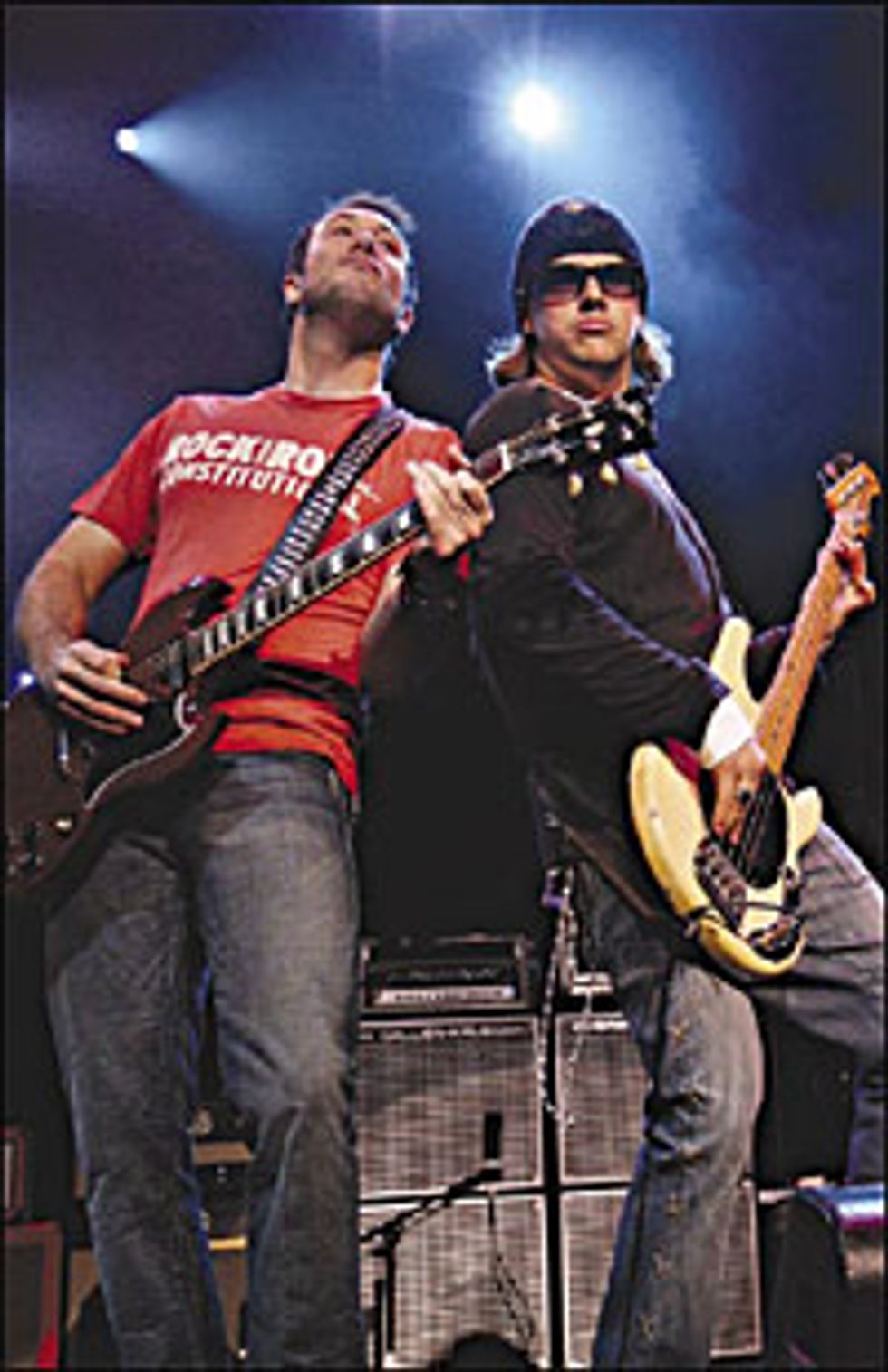 One thing we quickly learned about Paul is that he is an incredibly hard worker. When we first started to play, Paul Mirkovich (keyboards, vocals) said, “Paul, you don’t need to sing with us every time. We know all the singing is in a really high register.” Paul Stanley said, “This is what I do. If you play it, I’m gonna sing it.” During rehearsals, he was the first one there and the last one to leave. You rarely see that in a singer, especially one that has had the success that he has. It was really great to see someone that I admire live up to all the expectations and surpass them.
One thing we quickly learned about Paul is that he is an incredibly hard worker. When we first started to play, Paul Mirkovich (keyboards, vocals) said, “Paul, you don’t need to sing with us every time. We know all the singing is in a really high register.” Paul Stanley said, “This is what I do. If you play it, I’m gonna sing it.” During rehearsals, he was the first one there and the last one to leave. You rarely see that in a singer, especially one that has had the success that he has. It was really great to see someone that I admire live up to all the expectations and surpass them. It’s always an odd thing to play music that you’ve heard on a record so many times. You have to take something that is so firmly established in your head and play it live in a way that is true to the original spirit, but also bring a fresh look on it. At least that’s how I look at it. To me, that was our job in rehearsal. I wanted us to give the new songs a live feel, and bring the same approach to some of the older material.
One thing that was interesting was that three of us played guitar. Though Paul may be best known for being a charismatic front man, he is also a great guitar player. He does it so effortlessly that you almost don’t even realize that he’s playing. When we first got together, he was showing us a lot of the guitar parts for the songs. It’s crazy to think that he wrote them. Having three guitar players in a band gives you a lot of freedom and confidence. You know that all the parts from the record are being covered and you can take some liberties to be musical that way.
During the rehearsals, I also had one of the coolest days of my musical life.
| “It’s always an odd thing to play music that you’ve heard on a record so many times. You have to take something that is so firmly established in your head and play it live in a way that is true to the original spirit, but also bring a fresh look on it.” |
About a week or two into it, I got a call from my friend Chad Gilmore, who plays drums for an artist named Marc Broussard. He said that they were playing the Roxy and asked me if I wanted to sit in. I have played on Marc’s records and done some touring with him in the past, so knowing that I would be out of rehearsal in time, I agreed. I went from playing KISS and Paul Stanley songs on guitar, to playing soulful pop songs on a Wurlitzer (piano). To do that in the span of ten hours was one of the best musical days I could ever ask for. And one I won’t forget anytime soon.
Of course, after all the rehearsals came the live shows. Our first show with Paul was in Atlanta, GA at a great theatre called the Tabernacle. It has a huge old pipe organ and a great rock n’ roll vibe. Most first shows can be a bit troublesome. During any show, a lot of things can and will go wrong. Everything from getting a good mix on stage, to just plain remembering the songs and transitions can be a challenge. But this one went off without a hitch, and I think it was the best opening show I have ever been a part of.
Having a front man like Paul Stanley gives you a lot of confidence. This guy has been killing it for 30 years and you know that he won’t be the one to mess up. It was also very different for us because there were no cameras rolling. For the past two years, working on Rock Star, every time we played a song, we knew it was being filmed and recorded. Every little note and nuance is picked up. That can be stressful. Working with Paul was a return to the live roots that most of us are used to. That made it fun.
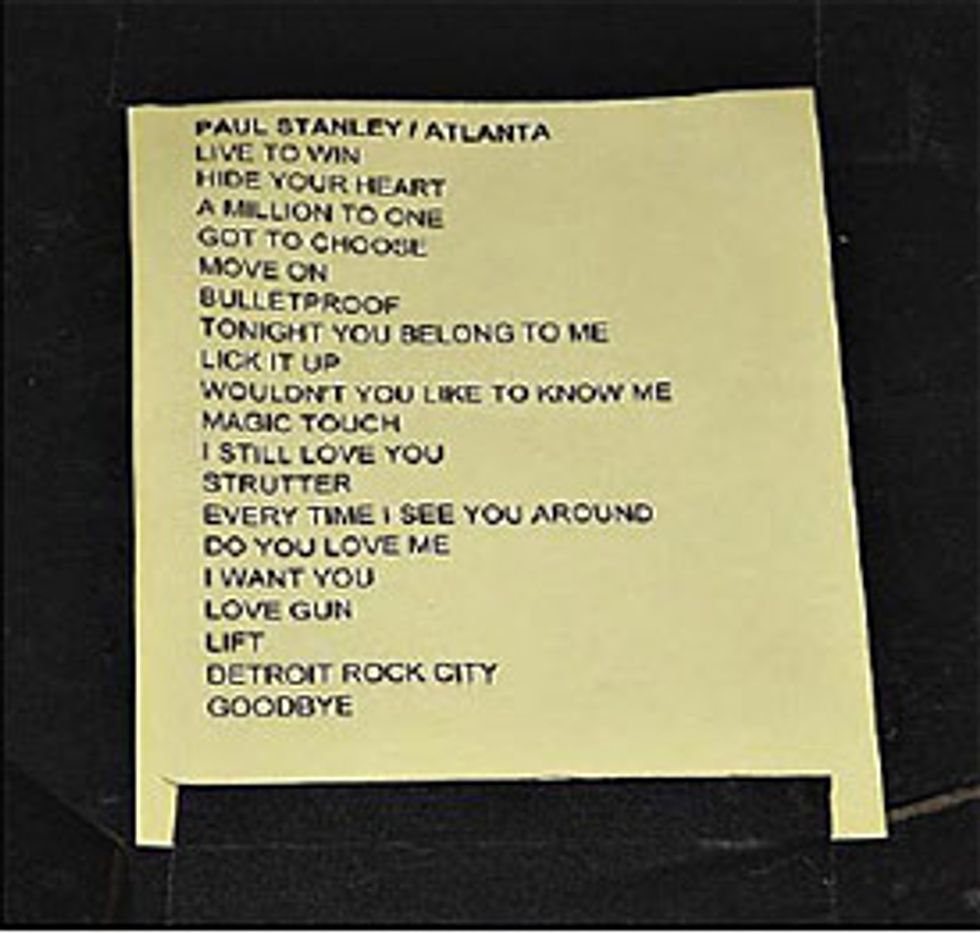 Speaking of fun, one of the best things about working with Paul is watching how he commands an audience. He literally has them eating out of the palm of his hand. Most nights, people in the crowd will yell out song names for him to play. Sometimes he will acquiesce, but we usually stick to the set. It is a set that he created to have a flow – and it works. However, one night in Portland (or was it Seattle? I’m not really sure…) there was a woman who would not stop yelling out the title of a song that we don’t normally play. After repeated requests, Paul said, “How much did you pay for your ticket?” She replied “$45,” and he said, “You’ve gotta pay at least $50 for requests.” She then outstretched her arm with five dollars in it. He went over to her, took the five dollars and started to play the song she asked for. With no accompaniment from the band (as we hadn’t rehearsed it), he played almost the whole song. When he finished and the crowd calmed their cheers, he said, “I’m keeping the five bucks!” The place exploded with laughter and we went on to the next song.
Speaking of fun, one of the best things about working with Paul is watching how he commands an audience. He literally has them eating out of the palm of his hand. Most nights, people in the crowd will yell out song names for him to play. Sometimes he will acquiesce, but we usually stick to the set. It is a set that he created to have a flow – and it works. However, one night in Portland (or was it Seattle? I’m not really sure…) there was a woman who would not stop yelling out the title of a song that we don’t normally play. After repeated requests, Paul said, “How much did you pay for your ticket?” She replied “$45,” and he said, “You’ve gotta pay at least $50 for requests.” She then outstretched her arm with five dollars in it. He went over to her, took the five dollars and started to play the song she asked for. With no accompaniment from the band (as we hadn’t rehearsed it), he played almost the whole song. When he finished and the crowd calmed their cheers, he said, “I’m keeping the five bucks!” The place exploded with laughter and we went on to the next song. Though it was only a three and a half week tour, it was one that I will always remember. For a kid from Philadelphia who used to fantasize about being a rock star, this experience was very close to a dream. Thanks, Paul for asking, “Can Jimmy come out and play?”
Jim McGorman
jimmcgorman.com


